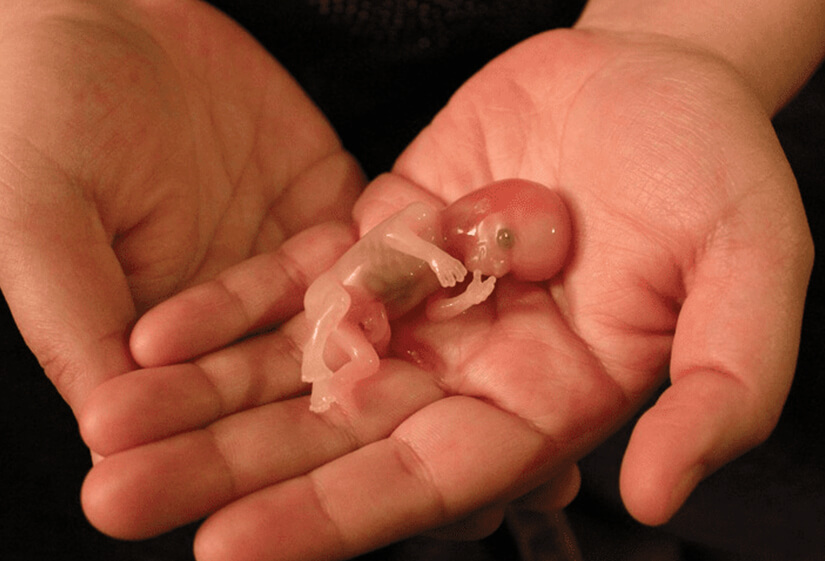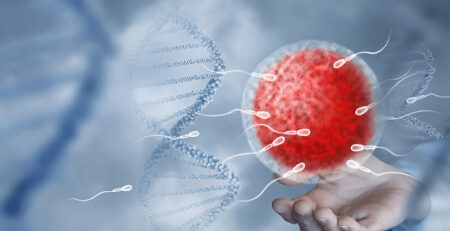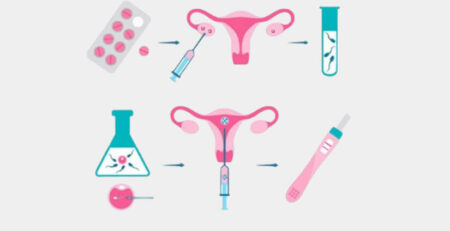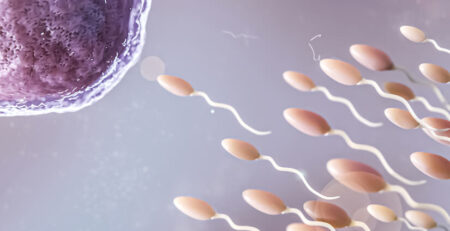How to Get Pregnant After Miscarriage: A Guide to a Healthy Pregnancy
Experiencing a miscarriage can be a difficult event, both mentally and physically. However, many women who have gone through this are eager to conceive again and achieve a healthy pregnancy. Understanding the process, addressing potential causes, and knowing when to seek specialized help can significantly improve your chances of success. This comprehensive guide will provide you with the information and insights needed to navigate this journey confidently.
The Emotional and Physical Recovery
Emotional Recovery
The first step towards a healthy pregnancy after a miscarriage is allowing yourself time to heal emotionally. It’s normal to feel a mix of grief, anxiety, and hope. Surround yourself with a support system, including your partner, family, friends, or a counsellor. Talking about your feelings and experiences can help you process the loss and prepare for the future.
Physical Recovery
Physically, your body needs time to recover from a miscarriage. Doctors often recommend waiting for one to three menstrual cycles before trying to conceive again, though this varies for each individual. This waiting period allows your body to return to its normal hormonal balance and gives your uterus time to heal.
Understand the Miscarriage Causes
Understanding the possible causes of miscarriage can help in preventing future occurrences. Here are some common causes:
- Chromosomal Abnormalities: Chromosomal abnormalities are a leading cause of miscarriage. These occur when there is an error in the baby’s chromosomes, often leading to early pregnancy loss.
- Hormonal Imbalances: Hormonal imbalances, such as thyroid disorders or polycystic ovary syndrome (PCOS), can affect pregnancy.
- Structural Problems in the Uterus: Structural issues such as fibroids, polyps, cervical incompetence or an abnormally shaped uterus can interfere with the implantation and growth of the embryo.
- Chronic Conditions: Certain chronic conditions like diabetes or thyroid disorders can increase the risk of miscarriage. Managing these conditions with your healthcare provider is crucial.
- Lifestyle Factors: Lifestyle factors such as smoking, excessive alcohol consumption, and being overweight can contribute to the causes of miscarriage. Adopting healthier habits can improve your chances of a successful and healthy pregnancy.

Preparing for Conception After Miscarriage
Once you’re ready to try again, there are several steps you can take to prepare your body for a healthy pregnancy:
- Maintain a Balanced Diet: Eat a variety of nutritious foods rich in vitamins and minerals to support your overall health and fertility. Include fruits, vegetables, whole grains, lean proteins, and healthy fats in your diet.
- Exercise Regularly: Engage in moderate physical activity to maintain a healthy weight and reduce stress. Activities like walking, swimming, and yoga can be beneficial.
- Take Prenatal Vitamins: Folic acid and other prenatal vitamins can help prevent birth defects and support a healthy pregnancy. Start taking these vitamins before you conceive.
- Monitor Your Cycle: Tracking your menstrual cycle and ovulation can help you identify the best time to conceive. Various apps and tools are available to assist with this.
- Avoid Harmful Substances: Quit smoking, limit alcohol intake, and avoid excessive caffeine. These substances can negatively impact fertility and pregnancy.
When to Seek Help from an IVF Centre in Delhi
If you have experienced multiple miscarriages or have difficulty conceiving, it may be time to seek help from a specialist. An IVF centre in Delhi can offer advanced diagnostic tests and treatments to address these challenges. Seeking help from an IVF centre is a proactive step towards achieving a healthy pregnancy. Here’s when to consider seeking help:
1- Multiple Miscarriages
Understanding Recurrent Miscarriage: Experiencing more than two miscarriages is known as recurrent miscarriage, a condition that affects about 1% of couples trying to conceive. Recurrent miscarriage can be emotionally draining and may indicate underlying health issues that need to be addressed.
Possible Causes and Diagnostic Tests
Genetic Testing: Chromosomal abnormalities in either parent can be a cause. Genetic testing can help identify these issues.
Hormonal Imbalances: Conditions like thyroid disorders, luteal phase defects, and polycystic ovary syndrome (PCOS) can disrupt pregnancy. Blood tests can detect these imbalances and identify miscarriage causes.
Structural Abnormalities: Uterine abnormalities such as fibroids, septum, or polyps can interfere with pregnancy. Imaging tests like ultrasound, hysteroscopy, or MRI can diagnose these conditions.
Immunological Factors: Some women have immune system issues that cause the body to reject the pregnancy. Blood tests can identify these problems.
Infections: Certain infections can increase the risk of miscarriage. Screening for infections can help in prevention.
Defects in sperm morphology: Defects in sperm morphology can also lead to repeated miscarriages.
Issues with Blood coagulation: Sometimes flow to teh developing embryo is inadequate and leads to either early miscarriages or small for age babies.
Treatment Options
Lifestyle Changes: Modifying lifestyle factors such as diet, exercise, and stress management can improve the chances of a successful pregnancy.
Medications: Hormonal treatments, antibiotics, anticoagulants or immune therapies might be prescribed based on the diagnosis.
Surgical Interventions: Procedures to correct structural problems in the uterus can be necessary for some women.
Assisted Reproductive Technologies (ART): Treatments such as IVF with preimplantation genetic testing (PGT) can help ensure that only healthy embryos are implanted.
2- Difficulty Conceiving
Defining Infertility: Infertility is typically defined as not being able to conceive after one year of regular, unprotected intercourse if you are under 35, or after six months if you are over 35. It is important to seek help early to increase the chances of successful treatment. Sometimes a couple may take too long to conceive after a miscarriage and this is when they should seek treatment for infertility.
Common Causes and Diagnostic Tests:
Ovulation Disorders: Irregular or absent ovulation can be detected through ovulation tests and blood tests.
Tubal Factors: Blocked or damaged fallopian tubes can prevent sperm from reaching the egg. Hysterosalpingography (HSG) and laparoscopy can diagnose these issues.
Male Factor Infertility: Issues with sperm quality, quantity, or motility can be identified through semen analysis.
Unexplained Infertility: In some cases, no specific cause is found. Comprehensive fertility testing can still provide valuable insights.
Treatment Options
Ovulation Induction: Medications like clomiphene citrate or gonadotropins can stimulate ovulation and make better quality eggs.
Intrauterine Insemination (IUI): This procedure involves placing sperm directly into the uterus around the time of ovulation.
In Vitro Fertilization (IVF): IVF is a process where eggs are retrieved from the ovaries, fertilized with sperm in a lab, and the resulting embryos are transferred to the uterus. IVF can be particularly beneficial for various infertility causes, including unexplained infertility, tubal issues, and male factor infertility.
Intracytoplasmic Sperm Injection (ICSI): ICSI involves injecting a single sperm directly into an egg, which can be beneficial for severe male factor infertility.
Advanced Fertility Preservation Techniques: Women can like cancer or those who wish to delay childbearing, egg or embryo freezing can be an option.
Benefits of Seeking Help Early
Seeking help from an IVF centre in Delhi early can significantly improve your chances of a successful pregnancy. Early intervention allows for:
Accurate Diagnosis: Comprehensive testing can identify the exact cause of infertility or recurrent miscarriage.
Timely Treatment: Early treatment can address issues before they become more complicated.
Personalized Care: Fertility specialists can create a personalized treatment plan tailored to your specific conditions and needs.
Emotional Support: Dealing with infertility can be emotionally challenging. Fertility clinics often provide counselling and support services to help you cope with the emotional aspects of treatment.
Choosing the Right IVF Centre in Delhi
When selecting an IVF centre in Delhi, consider the following factors:
Reputation and Success Rates: Research the clinic’s success rates and read patient reviews.
Experience and Expertise: Choose a clinic with experienced fertility specialists who are experts in their field.
Comprehensive Services: Ensure the clinic offers a range of fertility services, including advanced diagnostic tests and treatments.
Personalized Care: Look for a clinic that provides individualized treatment plans and personalized care.
Support Services: Consider the availability of counselling, support groups, and other resources to help you through the process.
Consulting with a reputable gynaecologist and IVF specialist in Delhi, can provide you with comprehensive fertility help, advanced diagnostics, and personalized treatment plans. Taking this step can bring you closer to achieving your dream of a healthy pregnancy and expanding your family.
By understanding miscarriage causes and, when to seek help, and what to expect from an IVF centre, you can take proactive steps toward overcoming infertility and achieving a successful pregnancy.
Additional Tips for a Healthy Pregnancy
- Stress Management: High stress levels can negatively impact fertility. Practices such as mindfulness, meditation, and yoga can help manage stress.
- Regular Medical Check-ups: Regular visits to your healthcare provider can help monitor your health and address any issues promptly.
- Adequate Sleep: Ensure you get enough restful sleep each night. Poor sleep can affect hormonal balance and overall health.
- Hydration: Drink plenty of water to stay hydrated, which is essential for your overall health and well-being.
- Avoid Environmental Toxins: Minimize exposure to environmental toxins, such as pesticides and chemicals, which can affect fertility and disrupt a healthy pregnancy.
- Support Groups: Joining a support group for women who have experienced miscarriage can provide emotional support and valuable insights from others who have gone through similar experiences.
By following the advice and guidelines in this comprehensive guide, you can take proactive steps towards achieving a healthy pregnancy after a miscarriage. Remember, you are not alone in this journey, and seeking professional help can provide the support and care you need to succeed.
Consider Expert Guidance
If you’re seeking expert advice and treatment for conceiving after a miscarriage, consider consulting Dr. Rhythm Gupta, a reputed gynecologist and IVF specialist in Delhi. Dr. Gupta’s clinic offers comprehensive fertility services, including advanced diagnostics and personalized treatment plans to help you achieve your dream of a healthy pregnancy.
Conceiving after a miscarriage can be challenging, but with the right support and medical care, you can increase your chances of success. Understanding the causes of miscarriage, taking proactive steps to prepare your body, and seeking specialized help when needed are crucial steps toward a healthy pregnancy. Don’t hesitate to seek expert guidance to navigate this journey confidently.
FAQs
Doctors usually recommend waiting for one to three menstrual cycles, but this can vary. It’s best to consult with your healthcare provider for personalized advice.
Yes, adopting a healthy lifestyle can significantly improve your fertility and chances of a successful pregnancy.
Seek medical advice to identify any underlying issues. A fertility specialist can provide advanced diagnostics and treatment options.
No, there are various treatment options available depending on the cause of infertility. IVF is one of the effective treatments, but hormonal therapies and surgical interventions may also be considered.
While emotional stress alone is not a direct cause of miscarriage, high-stress levels can negatively impact overall health and fertility. Managing stress is important for a healthy pregnancy.












